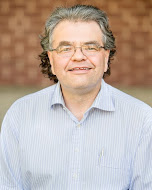'City Building' is Ambitious, But, In the End, Artificial: Prof. Glen Kuecker
April 26, 2016
 The parent company of Google parent, Alphabet Inc., and its urban technology-focused subsidiary, Sidewalk Labs, may "delve into an ambitious new arena: city building," reports the Wall Street Journal. "According to people familiar with Sidewalk’s plans, the division of Alphabet is putting the final touches on a proposal to get into the business of developing giant new districts of housing, offices and retail within existing cities."
The parent company of Google parent, Alphabet Inc., and its urban technology-focused subsidiary, Sidewalk Labs, may "delve into an ambitious new arena: city building," reports the Wall Street Journal. "According to people familiar with Sidewalk’s plans, the division of Alphabet is putting the final touches on a proposal to get into the business of developing giant new districts of housing, offices and retail within existing cities."
Eliot Brown writes, "The company would seek cities with large swaths of land they want redeveloped -- likely economically struggling municipalities grappling with decay -- perhaps through a bidding process, the people said. Sidewalk would partner with one or more of those cities to build up the districts, which are envisioned to hold tens of thousands of residents and employees, and to be heavily integrated with technology."
Brown notes that "the history of city-building and large-scale urban development projects is full of failures and disappointments" and he cites "Glen Kuecker, a history professor at DePauw University who has studied the Songdo City district near Seoul and other smart cities."
 Dr. Kuecker tells the Journal, "You can build a city from scratch and you can copy and emulate the great qualities of cities. It’s still a very artificial and sterile place."
Dr. Kuecker tells the Journal, "You can build a city from scratch and you can copy and emulate the great qualities of cities. It’s still a very artificial and sterile place."
Read the story at the newspaper's website.
Glen David Kuecker is currently working on a project called "The Making of Habitat III." It is part of a larger project about how humanity will weather the perfect storm of 21st-century crises: the intersections between climate change, energy transition, food insecurity, demographic shift (growth, aging, urbanization), ecological degradation, economic stress and dysfunctional politics.
Learn more about the professor, who is co-editor of Latin American Social Movements in the Twentieth Century and Globalizing Resistance: The New Politics of Social Movements in Latin America, in this previous story.
Source: Wall Street Journal
